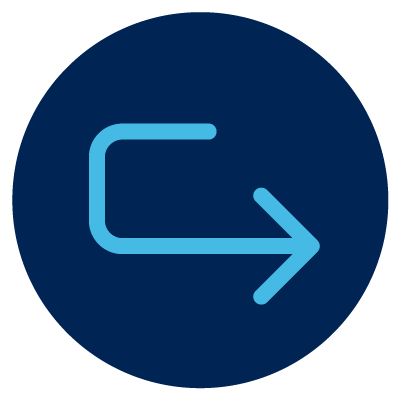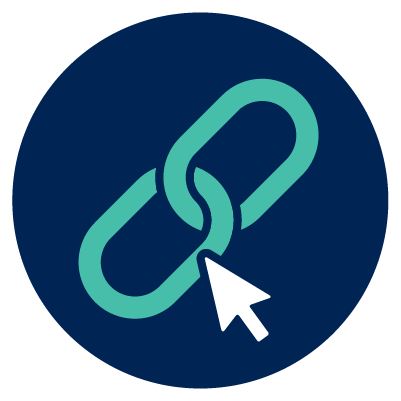What the Employment Assistance Fund can cover
The Employment Assistance Fund (EAF) can cover the costs of workplace changes and equipment for eligible employees with disability. It can also fund Auslan interpreters and other workplace support services. JobAccess refunds the costs after you apply for the EAF and get approval.
Workplace changes are also called ‘workplace modifications’, ‘workplace adjustments’ and ‘reasonable adjustments’.
Workplace modifications and equipment
The EAF can cover the cost of a range of changes in the workplace, including equipment and assistive technology. We’ve listed some examples below.
Please note this isn’t a complete list. For more information on what costs the EAF can cover, download the full EAF guidelines or contact JobAccess at 1800 464 800 for free advice.
Software and communication technology
The EAF can fund assistive technology or software for work. Examples include:
- screen reading and speech recognition software
- braille software and devices, such as braille printers
- pagers
- visual alert systems for phones, doors and alarms
- voice recorders
- computer accessories, such as headsets and mouse alternatives
- assistive listening devices.
The EAF doesn’t fund hearing aids, cochlear implants and corrective eye glasses.
Changes to work vehicles
The EAF can cover the costs of changes to a work vehicle, if the vehicle is essential to doing the job. Vehicle modifications might include:
- seat belt extensions
- car seat cushions
- changes to foot and hand controls
- adding ramps and wheelchair docks
- swivel seats.
Work equipment
The EAF can fund new equipment for an employee with disability to use in the workplace. It can also cover the cost of changes to existing equipment.
Examples of work equipment include:
- talking cash registers
- talking tape measures
- desks and chairs that can be adjusted
- adaptive kitchen appliances, such as talking microwaves and kettle tippers
- automatic floor cleaning devices
- work platforms.
The EAF is only for items specific to supporting disability. If the equipment is something an employer would normally provide, the EAF won’t pay for it.
For example, employers are responsible for making sure staff have the tools to do their job, such as a desk, chair, phone and computer. Employers also need provide safe, comfortable workspaces. This includes any equipment to support work health and safety for all staff.
Physical changes to workplaces
Physical changes can include changes to a building or to a workspace to make the workplace more accessible for employees. For example:
- alternative lighting
- access ramps
- automatic doors and built-in alert systems
- changing the height of a workstation or the position of shelves
- devices to control noise.
If you’re applying for funding for a physical change or building modification, you will need a workplace assessment. JobAccess will arrange this free assessment.
Auslan interpreting services
The EAF can fund 3 categories of Auslan interpreting to support employees who are deaf or have a hearing impairment:
- Auslan Level 1 – for support to do work-related activities, including remote interpreting and real-time captioning
- Auslan Level 2 – for job interviews and job-seeking activities, such as site visits and information sessions
- Auslan Level 3 – for co-workers of a deaf employee to complete nationally recognised Auslan training (Certificate II in Auslan).
To get EAF funding, the Auslan interpreters must be at the professional or para-professional level. They must also have a current National Accreditation Authority for Translators and Interpreters (NAATI) certificate.
Workplace assistance and support services
You may be able to use the EAF to cover the cost of assistance and support services at work.
This includes:
- training or technical support to help a person with disability learn to use modifications and equipment
- disability, deafness and mental health awareness training in workplaces that employ someone with disability
- specialised support and training for people with mental health conditions or learning disabilities. This is tailored to meet the needs of the person and help them overcome any barriers at work.
To get EAF funding for awareness training, the trainer must have at least a Cert IV in Training and Assessment and have related expertise. The employer or Inclusive Employment Australia provider can’t run the training.
Funding caps and conditions
Some items, such as assistive technology and work equipment, are funded on a case-by-case basis through the EAF. Other items and services have a cap on the amount of funding you can get. This includes:
- Workplace modifications and equipment – capped at $67,339.10
- Auslan Level 1 interpreting for work-related activities – capped at $13,647.40 in a 12-month period
- Auslan Level 2 interpreting for job interviews and related activities – no funding cap
- Auslan Level 3 training for co-workers to complete the nationally recognised Certificate II in Auslan – capped at $959.49 for each person taking the course
- Specialised support and training for people with mental health conditions or learning disabilities – capped at $1,682.77 for each employee taking the training
- Awareness training for workplaces that employ a person with disability – capped at $1,682.77 for each employee with disability in a 12-month period.
For all the details, terms and conditions, download the full EAF guidelines. You can also get in touch with one of our JobAccess Advisers on 1800 464 800 or through our online enquiry form.
Useful Downloads
Related pages
Last updated:
What the Employment Assistance Fund can cover
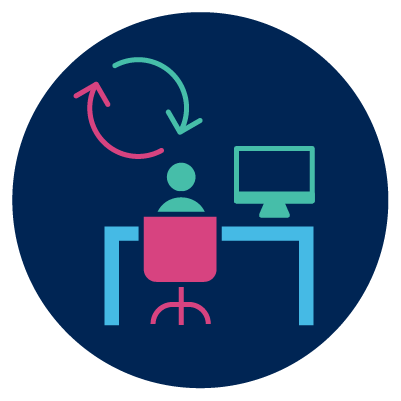
You can get support to make changes to the place where you work to help you do your job.
You can also get support to cover the cost of services, including Auslan services.
What costs can the EAF cover?
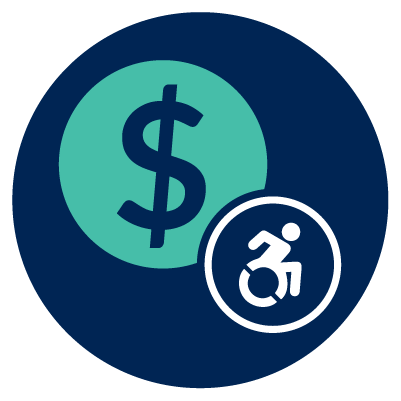
The The EAF can cover the cost of supports and services so people with disability can do their job and get help with finding a job. covers the cost of items that support your disability.
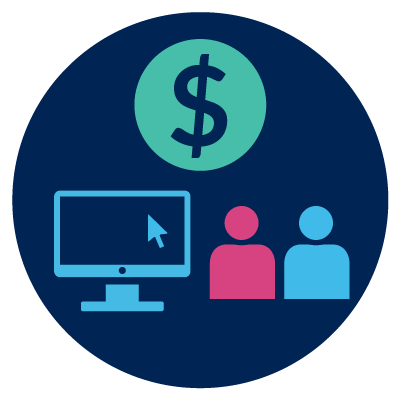
The EAF can cover the cost of things in your A workplace is any place you might work, such as an office, factory or shop.
This includes:
- equipment
- support services.
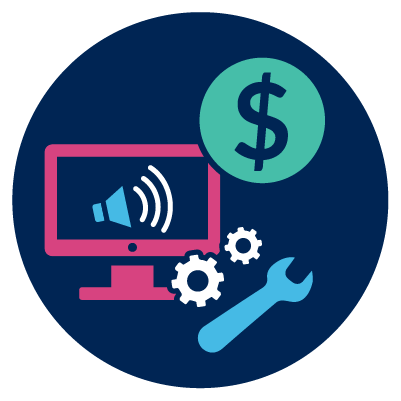
It can cover the cost of things like:
- changing the area where you work
- equipment
- supports and services
- someAssistive technology is an aid or piece of equipment that supports you to work.

It can cover the cost of an An Auslan interpreter is someone who uses Auslan to help you understand what someone says.
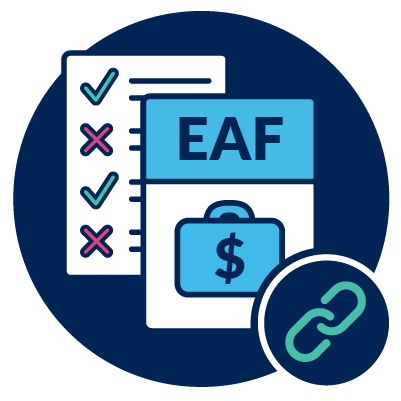
You can find out more on our page about the EAF guidelines.
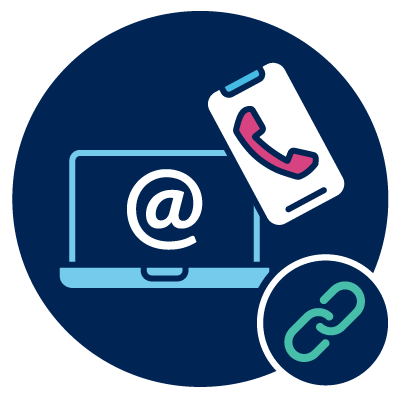
We can also give you free advice.
You can visit our Contact Us page to talk to us.
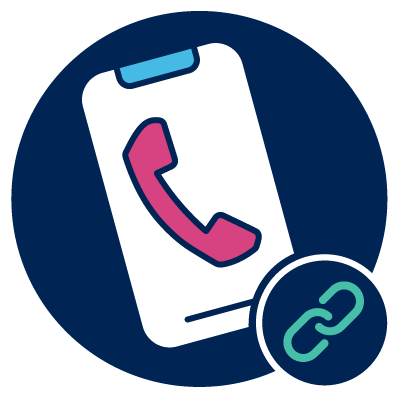
Changing the area where you work
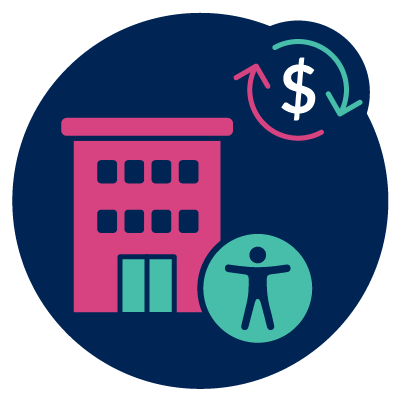
The EAF can cover the cost to change the area where you work to make it more When something is accessible it is easy to find, use and move around.
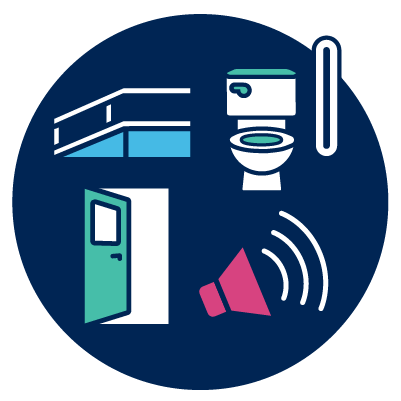
For example, the EAF can cover the cost of:
- ramps
- toilets everyone can use
- automatic doors
- devices to control the amount of noise.
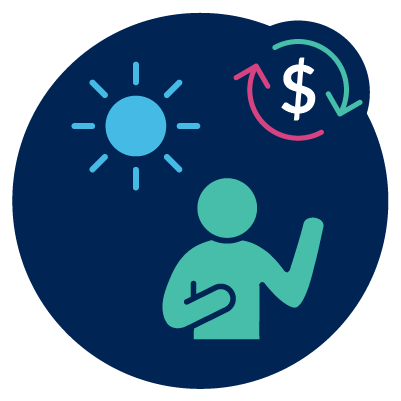
It can also cover the cost to change:
- the amount of light in a workplace
- how high things are, so you can reach them.
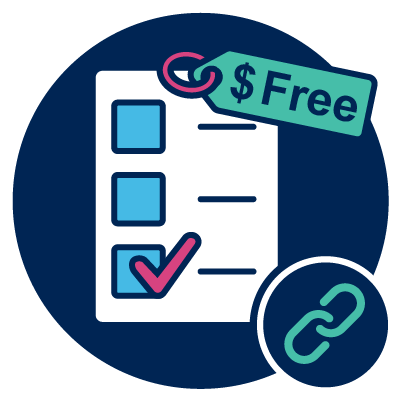
If you want to change the area where you work, we’ll visit your workplace to check it.
This is free.
You can find out more on our page about getting a workplace assessment.
Your work equipment
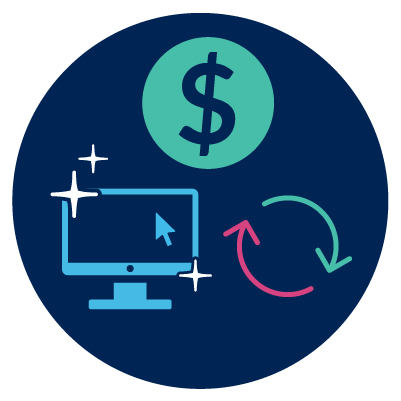
The EAF can cover the cost of the equipment you need in your workplace.
The EAF can cover the cost:
- for new equipment
- to change old equipment.
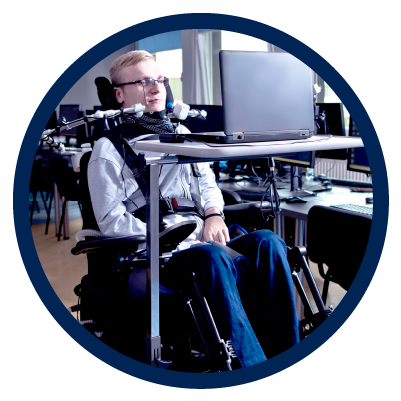
For example:
- devices that speak to you, like talking tape measures
- desks and chairs you can move to fit your body
- automatic floor cleaners.
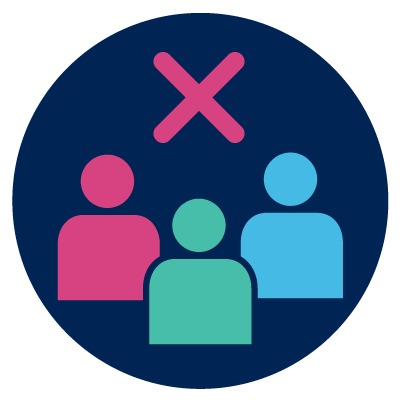
The EAF won’t cover the cost of things that an An employer hires people to work for them. provides for everyone.
For example, if an employer gives everyone a phone, EAF won’t cover the cost for you to have the same one.
Your work car
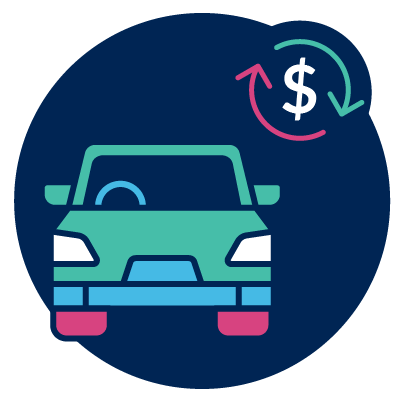
The EAF can cover the cost to change a work car.
This includes:
- longer seat belts
- car seat cushions
- changing the controls.
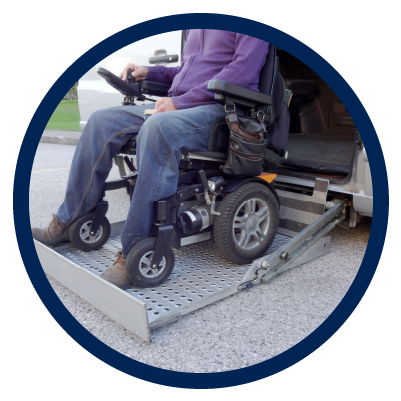
It can also cover the cost of things like:
- ramps
- different seats
- a place for your wheelchair in the car.
Support at work

The EAF can cover the cost of supports at work.
These supports include:
- training for you to learn how to use equipment
- training for co-workers to understand your experiences and what you need
- support for people with a learning condition
- support for people with a mental health condition.
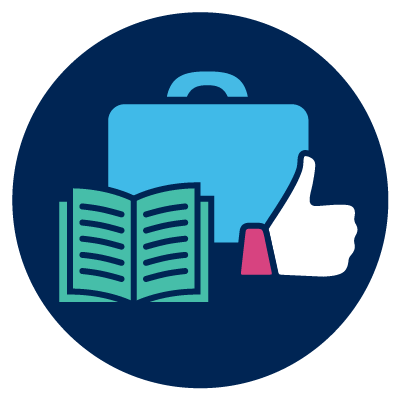
Everyone who delivers these supports has:
- studied or trained
- learned how to do their job the right way.
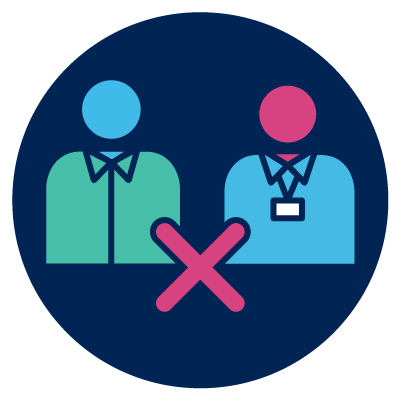
Your employer or Inclusive Employment Australia helps people with disability find and keep jobs. Inclusive Employment Australia providers deliver services to help people with disability do this. can’t give you these services.
Auslan services
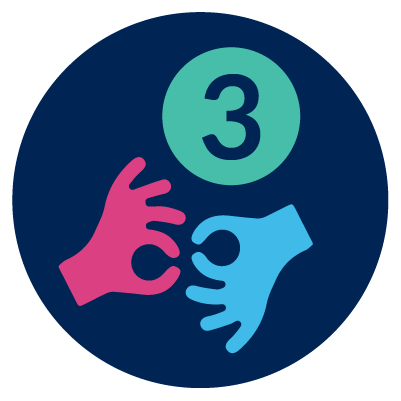
The EAF can cover the cost of 3 different levels of Auslan services.
These services all involve working with an Auslan interpreter.
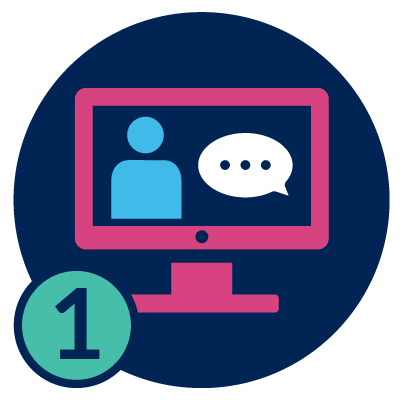
Auslan Level 1 can support you to do your work.
This includes:
- translating things into Auslan over a video call
- putting words on a screen so you can read what people say in real-time.
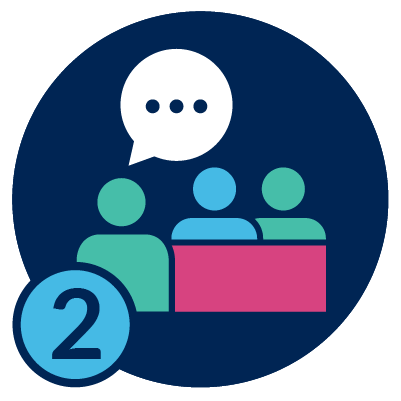
Auslan Level 2 can support you to find a job.
This includes supporting you to take part in:
- job interviews
- visiting workplaces
- information sessions.
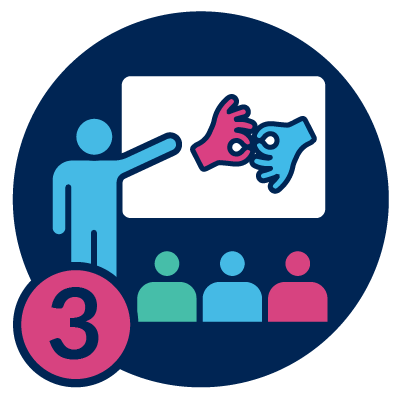
Auslan Level 3 can give your co-workers training in Auslan.

Every Auslan interpreter who works through the EAF has:
- studied or trained
- learned how to do their job the right way.
Assistive technology
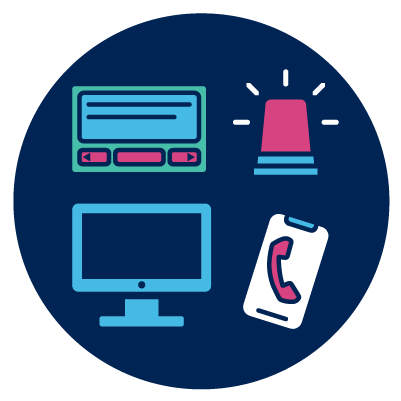
The EAF can cover the cost of some assistive technology.
For example:
- a pager – a device that receive messages from people
- visual alerts for things that rely on sound, like an alarm
- devices for your computer, like something to replace a mouse
- assistive listening devices that help with things like phones.
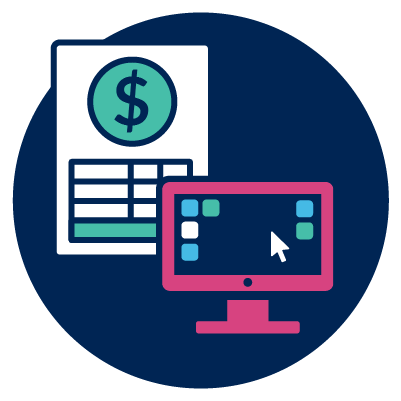
The EAF can cover the cost of computer programs.
For example:
- screen reading programs
- braille computer programs and devices
- devices to help you hear.
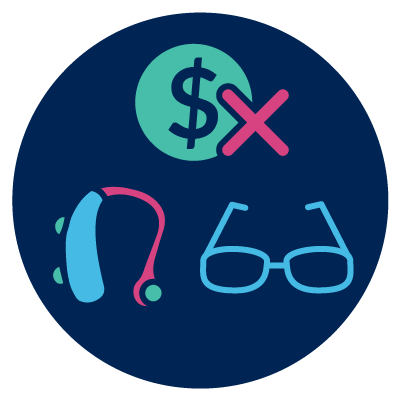
The EAF doesn’t cover the cost of:
- hearing aids
- glasses.
How much can the EAF can cover?
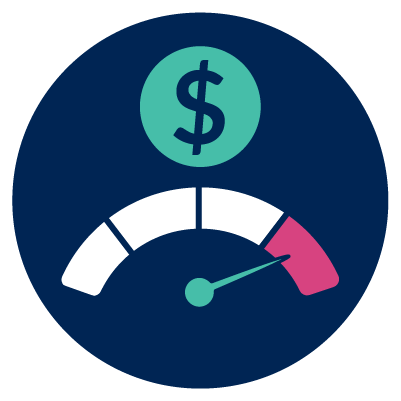
The EAF has a limit on the cost of some items it can cover.
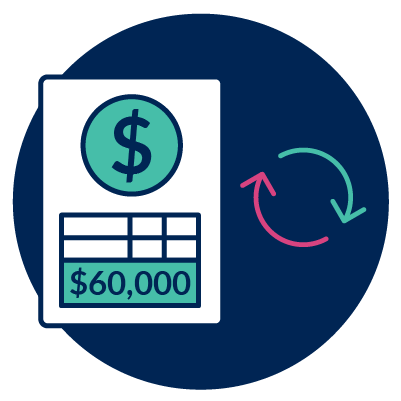
The EAF can cover up to $60,000 for changing the area where you work.
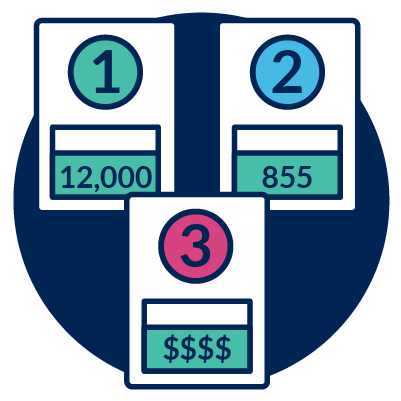
The EAF can cover up to:
- $12,000 every 12 months for Auslan Level 1
- $855 per person taking part in Auslan Level 3.
There’s no limit on the amount of money EAF will cover for Auslan Level 2.
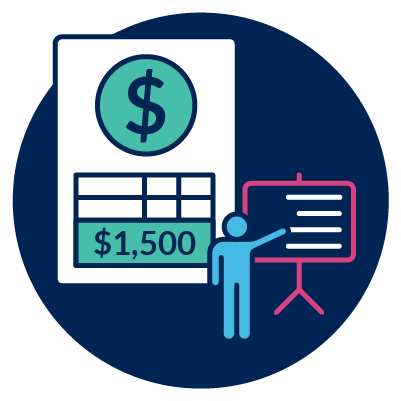
Every 12 months, the EAF can cover up to $1,500 per co-worker for training to understand:
- your experiences
- what you need.
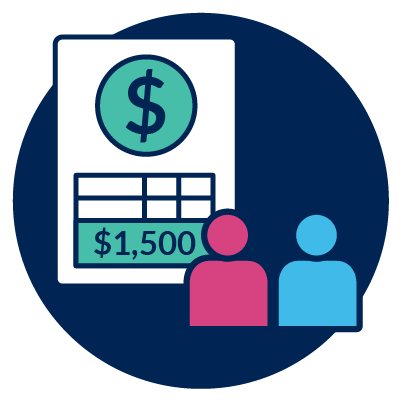
The EAF can cover up to $1,500 to support people with a:
- learning condition
- mental health condition.
